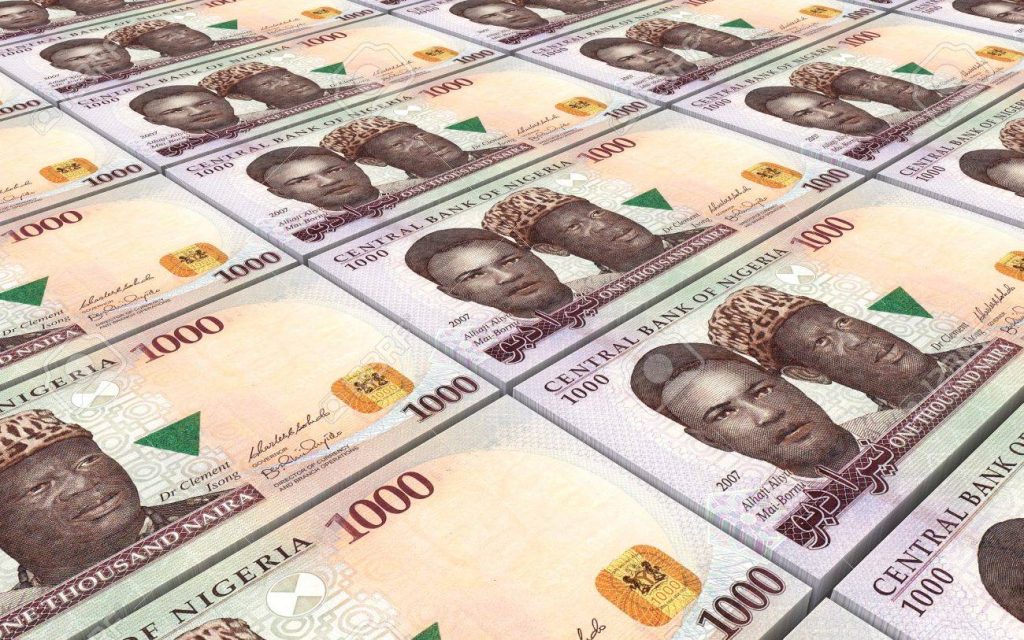Experts have urged the federal government to exercise caution over the printing of the naira currency (Ways and Means) to fund its needs.
Edo state Governor, Godwin Obaseki, recently said the Central Bank of Nigeria (CBN) printed about N60 billion (Ways and Means) to augment the amount distributed to states in March 2021 by Federation Account Allocation Committee (FAAC).
Ways and Means (W&M) financing is basically the printing of money by the CBN to enable the FG to plug its budget deficit.
Since 2015, when President Muhammadu Buhari first assumed office, the total amount of money borrowed from the CBN (Ways and Means) to meet fiscal obligation has surged astronomically.
In 2014, borrowing by the Federal Government stood at N922bn. This later surged to N2.5 trillion in 2015, N5.21tr in 2016, N5.87tr in 2017, and a whopping N8.12tr in 2018.
The CBN’s net financing to the Federal government stood at N4.4tr as at August 2019 from less than N400bn in December 2018.
The N4.4tr net loans to the federal government (August 2019), is the net sum of outstanding CBN overdrafts to the FG minus the government’s Treasury Single Accounts (TSA) deposits with the CBN.
Government borrowing from CBN since 2015 has led to the accumulation of N13.2tr (8.6% of GDP) balance under the W&M facility at the end of September 2020, according to data from Fitch Ratings.
This represents around 28 percent of the total Government debt stock, by Fitchs’ estimates.
FG became dependent on central bank borrowing after oil prices collapsed in 2015.
Earnings from crude sales account for about half of government income. The CBN financing helped plugged spending shortfalls as non-oil revenues failed to cover the gap created by lower earnings from crude exports.
There have been previous concerns that the CBN is breaking its own rules regarding W&M advances extended to the Federal Government.
The CBN in a draft Monetary, Credit, Foreign Trade, and Exchange policy set of guidelines released in September, 2020, indicated in section 3.2.15, that W&M advances shall continue to be available to the Federal Government, to finance deficits in its budgetary operations to a maximum of 5 percent of the previous year’s actual collected revenue.
Analysts have said such money printing or financing of the federal government by CBN has the effect of debasing the local currency (naira), and could spark hyper-inflation.
Dr. Bongo Adi, a senior lecturer at the Lagos Business School said definitely the CBN action will impact inflation and undermine investors’ confidence.
“We are already in stagflation right now with a high level of unemployment. We also know that the government is borrowing to fund the budget deficit. This is making a bad situation worse. There is an implication on inflation. The inflation rate is going high and the exchange rate is nose-diving,” he noted.
A development analyst and ONE’s Africa Executive Director, Edwin Ikhuoria, said the CBN intervention is nothing new.
Ikhuoria said: “The United States printed trillions of dollars for this same purpose. The idea is that, because of the impact of COVID-19, there has been low demand and low production. So this stimulus is to propel production.
“The entire African countries injected a total of $49bn while the developed countries injected $14trillion. The $1.9tr that President Joe Biden of the United States injected into the economy was not part of the budget. It is like practically giving out cash on the street.”
He however argued that over dependence will result in worsening inflation.
He said: “where there is demand, the system becomes awash with too much liquidity and therefore prices will go up.”
Managing Partner/Managing Director Qeeva Advisory Limited, Matthew Ogagavworia, said ‘ways and means’ is virtually an internal arrangement. it is more of a book entry but if used often, it can be inflationary.
“If we continue to print money and the volume of output has not increased, we may be moving in the direction of Zimbabwe where you need a bag full of money to buy bread.”
The federal government recently set the terms for the conversion of its stock of central bank ways and means overdrafts into long-term notes in a bid to create transparency around its dependence on that source of funding.
The N13.2tr (over $25bn) debt will be exchanged for 30-year notes issued to the central bank, Patience Oniha, head of the Debt Management Office (DMO) told Bloomberg.
The conversion will add to Nigeria’s debt stock, which stood at N49tr at the end of last year, according to estimates by the IMF.
The frequently asked questions on the CBN website showed that the CBN agreed the FG can frustrate its monetary policy initiative by pressing demand for more cash.
According to Fitch Ratings, “FGN’s new borrowing from the CBN has repeatedly exceeded that limit in recent years, and reached around 80% of the FGN’s 2019 revenues in 2020.”
Fitch Ratings noted that the constant recourse to WMF highlights weaknesses in public finance management of the FG and this action “raise risks to macroeconomic stability – given the current weak institutional safeguards – but we expect the FGN to reduce its use of the facility in 2021.”
By Chris Agabi, Francis A. Iloani (Abuja) & Sunday M. Ogwu (Lagos)

 Join Daily Trust WhatsApp Community For Quick Access To News and Happenings Around You.
Join Daily Trust WhatsApp Community For Quick Access To News and Happenings Around You.


